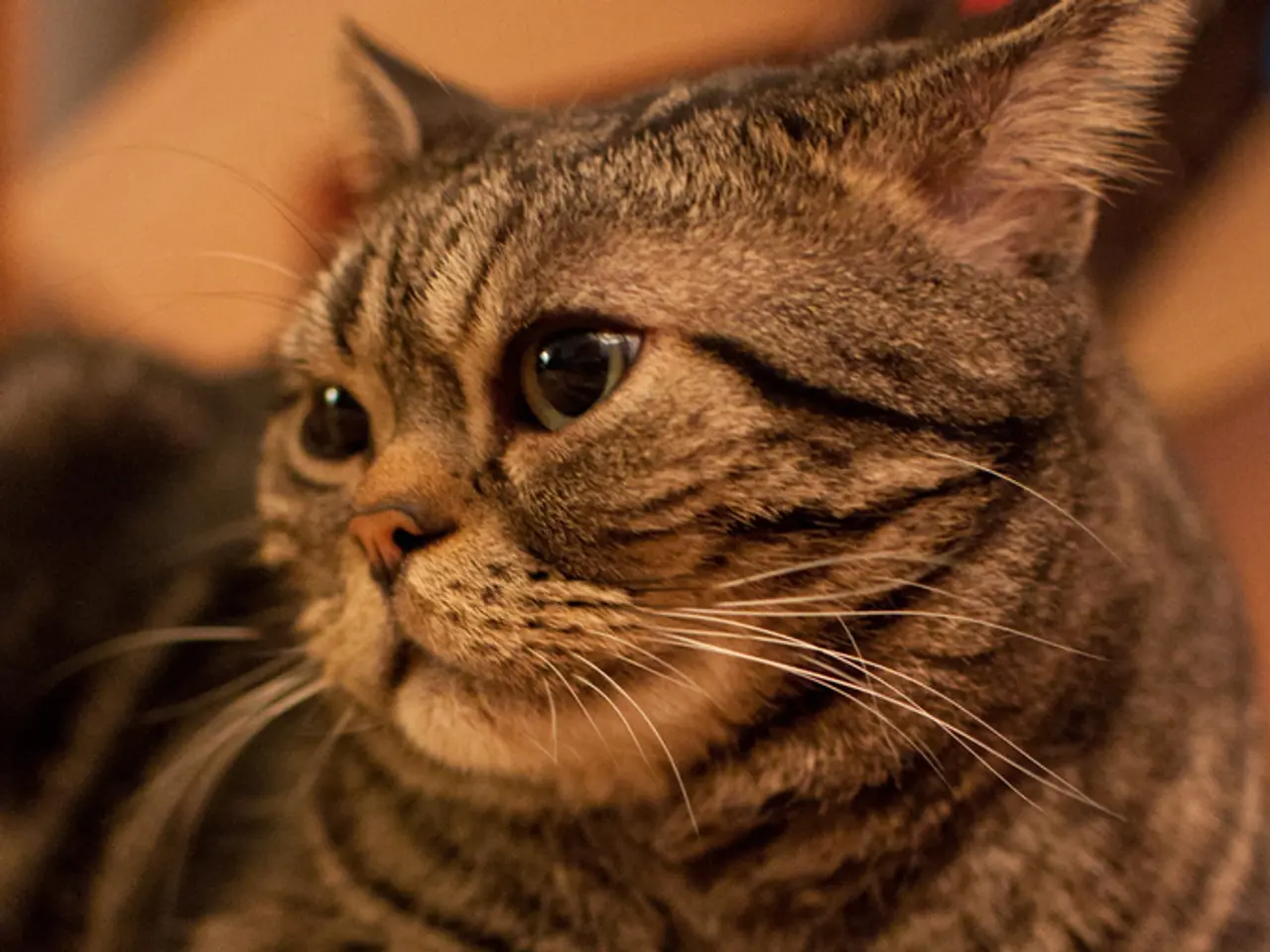Cat Experiences Hair Loss After Diet Change: Vet's Explanation Provided
Roxy, a Burmese/British Shorthair cross, recently experienced hair loss. This unusual occurrence sparked a closer look at the factors contributing to her condition, with a focus on her recent diet change.
Sudden changes in a cat's diet can lead to allergic reactions or stress, which may result in excessive scratching or overgrooming, ultimately causing hair loss. While the food change itself does not directly cause hair loss, it can provoke underlying sensitivities or allergies that manifest as hair loss.
In Roxy's case, she was previously fed Royal Canin kibble but was later switched to Wellness Core kibble. The abrupt change might have triggered such a reaction, leading to her vomiting, loose stools, and increased gas.
To avoid such issues when switching a cat's food, it is recommended to introduce a new diet gradually. Dr. Rebecca MacMillan, who was consulted about Roxy's hair loss, suggests starting by mixing approximately 25% new food with 75% old food for the first couple of days. Over time, the ratio can be adjusted to 50% new to 50% old for a couple of days, followed by 75% new to 25% old food. If the cat tolerates this ratio well, you can go to 100% new food after a couple of days. However, some cats may require an even more gradual introduction, and if problems arise, it's best to go back a step or two and give them a little longer.
Stress and anxiety in cats can be triggered by various factors such as a house move, new pets or family members, or building work. In Roxy's case, her owner's prolonged absence due to travel might have caused her stress, leading to excessive grooming and hair loss.
It's important to note that allergies in Roxy seem unlikely due to her ability to eat various foods without issue. However, Dr. MacMillan did suggest that a dietary allergy could be the cause of Roxy's hair loss, and a strict dietary trial under veterinary supervision would be required to confirm this.
Fortunately, Roxy's hair loss does not appear to be caused by fleas or parasites. Other potential causes, such as skin allergies, parasites, pain from arthritis, cystitis, hormonal conditions, cancer, or other illnesses, would require further investigation by a veterinarian.
In summary, when transitioning a cat's diet, it's crucial to do so gradually to minimise the risk of allergic or stress-related reactions that may lead to hair loss. Proper veterinary care and monitoring can help manage and prevent such issues.
Read also:
- Inadequate supply of accessible housing overlooks London's disabled community
- Strange discovery in EU: Rabbits found with unusual appendages resembling tentacles on their heads
- Duration of a Travelling Blood Clot: Time Scale Explained
- Fainting versus Seizures: Overlaps, Distinctions, and Proper Responses








